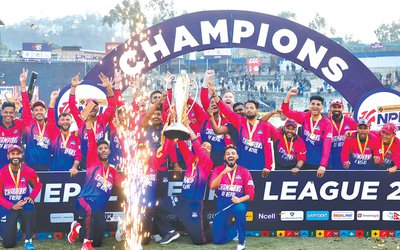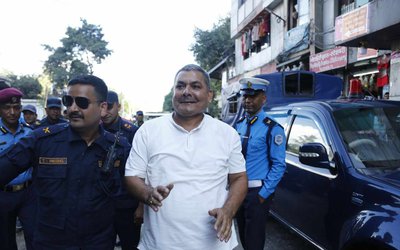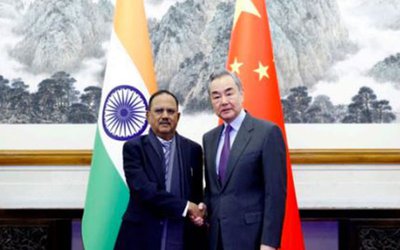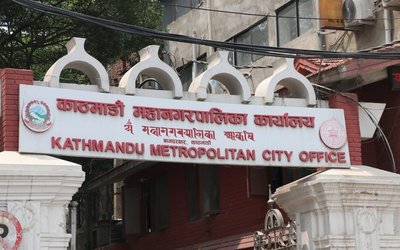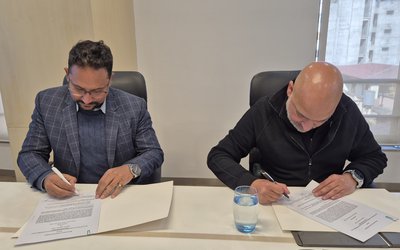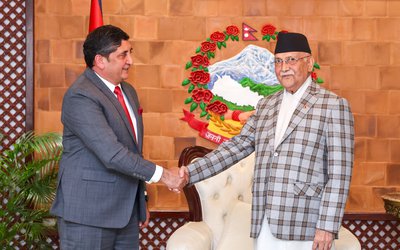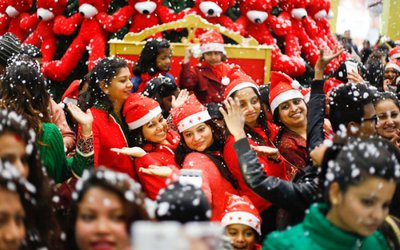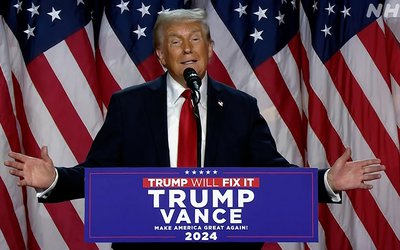The official function to celebrate Nepal’s 61st National Democracy Day this February 19 was a quiet affair. A sizeable portion of the enclosure meant for representatives of the constitutional bodies at Sainik Manch, the official venue of the main program, stayed empty.In a way, the mass absence from the official function demonstrated a sense of indifference or cynicism towards the current leadership. What the president or prime minister said on the occasion was treated more like a ritual than a mark of their ability or will to protect, preserve or consolidate democracy.
Maoist ideologue and dissident leader Baburam Bhattarai was perhaps more forthright about the day’s significance or lack thereof: “Celebrating Republic Day will be enough. There is no point celebrating Democracy Day separately.” That explains why the Maoists absented themselves en bloc. The lackluster event also reflects the general mood of the people, and their lack of faith that the current leadership will consolidate and institutionalize democracy and republicanism — and also in their ability to deliver the new constitution by its extended deadline, May 28, as the major political parties are divided on its crucial ingredients.
The constitution-making process is also being affected by the predicament of Prime Minister Jhalanath Khanal, who faces the prospects of either having to resign or acting on outside dictates.
Less than three weeks after he won the race to power with support from the Unified Communist Party of Nepal-Maoists (UCPN-M), the largest party in parliament, he has been clearly told that there is no such thing as complete support to an outsider without strings attached.
Khanal has already been reduced to a helpless entity; he is neither likely to be able to honor the seven-point pact he signed with the Maoists because of non-cooperation from his party, the Communist Party of Nepal-Unified Marxist Leninist (CPN-UML), nor can he convince the Maoists to support him unconditionally. He has not even been able to give shape to his cabinet as the Maoists are linking their joining the cabinet with his willingness to honor their pact: that the Maoists must be given the home portfolio, form a separate security outfit comprising solely of Maoist combatants, and move towards transforming Nepal into a caste- and ethnicity-based “people’s republic.”
The options before him come down to either resigning or ditching his own party completely and working like a puppet in the hands of theradical Maoists. But the last option exposes him to the risk of being expelled from his party — and, in the process, losing his House membership and the chair he acquired through a secret deal. All this makes Nepal’s politics more anarchic, uncertain and discredited.
People are increasingly questioning the parties’ intention and ability to deliver the constitution and protect democracy. P.L. Singh, one of Nepal’s best-known figures, who worked as the Nepali Congress’s public relations man during its 30-year underground crusade for the restoration of multi-party democracy, came out with a prescription for the restoration of a constitutional system. He suggests the return of the 1991 constitution with two pillars — a constitutional monarchy and multi-party parliamentary system — and then a collective decision on what reforms are needed to make it more in tune with people’s aspirations. Singh, the first elected mayor of Kathmandu after multi-party democracy was established in 1991, was sweeping in his remarks: that the Maoists’ goal is to finish off democracy and establish one-party dictatorship, and that, “one by one,we are acting like pawns in their hands.”
But a statement that could have led to his being tagged as “regressive” and “reactionary” three years ago, is being greeted with silence today. Almost coinciding with that, the former king, Gyanendra, issued a statement that indicated things have grown worse since his exit, but that he continues to be a stakeholder in the stability and consolidation of democracy. He did not forget to add that his grandfather had a hand in establishing democracy 61 years ago, putting the throne at risk. But what is likely to guide the future political course of Nepal is the growing erosion in the credibility of the political parties and their inability to deliver. The constituent assembly no longer symbolises hope as a possible source of a “people’s constitution”.
That further limits options. Either the country enters a non-constitution era, with all the implications that has, or it revives the previous constitution along with the formation of expert committees to suggest modifications in tune with current political reality. (Indian Express)
- SWISS SUPPORT: Construction Of A Trekking Trail In Koshi
- Dec 19, 2024
- PM OLI'S VISIT TO CHINA: BRI Agreement
- Dec 16, 2024
- RASUWAGADHI AND SANJEN: Begin Generation
- Dec 03, 2024
- NEPAL, INDIA ELECTRICITY TRADE Nepal's Advantage
- Dec 02, 2024
- PM Oli'S VISIT TO CHINA: Nepal's Dilemma
- Dec 01, 2024

